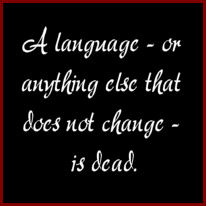So I lost my mind a bit. OK, a lot. All right…completely.
J’ever experience something that just keeps eroding your sanity ever so slowly, like the effect of water against rock over a million-year time span? Eventually, all that’s left is bare naked nerve endings, and you break like a ginger snap. That kind of happened to me.
Maybe it’s the ongoing deranged senselessness of CCSS and HST in my life and in the lives of my students and colleagues that pushed me over the edge of the Cliff of Insanity; maybe it’s Dinner Theatre madness. Maybe it’s my ridiculous schedule which keeps me away from my grandchildren. I don’t know what happened, but a bell rang and school was out and teacher lost her poop. What was the trigger? you ask. What horrible tragedy befell you? Oh, this:

Every day, I get an email from Groupon, with fantastic deals. 1,000s of deals. It’s always bothered me, that mistake. For a long time, I did my best to just ignore it. After all, it’s an email, people. Seriously. Worry about important stuff. But remember the water-against-rock thing? Seems the moon went into the seventh house, and Jupiter aligned with Mars, and then big bang. I went to Groupon’s customer feedback page and wrote thusly:
Please, please, PLEASE fix the gargantuan grammar mistake in ALL of your emails! It makes you look like idiots!
It is NOT: “We’ve got 1,000s of deals every day.”
You either have “1,000 deals” or you have “THOUSANDS of deals.” You NEVER have “one thousands of deals,” which is what your current graphic says, and which, as you most certainly can see, makes no sense whatsoever.
Please fix this glaring error for those of your customers who value proper professional business copy.
Thanks.
L. Jackson
Now I ask you: Why the need for so many CAPITAL LETTERS? I actually HATE IT when people overuse that device, and I used it FIVE TIMES in one message. What’s wrong with me? I’m not a meanyhead, and I try to never make folks feel bad. Am I cracking up? And to make matters worse, I received this kind reply:
Hi Linda,
Thanks for sharing your feedback with us. I’ll be sure to pass your suggestion on to the right people.
Regards,
Satheesh T
Groupon Customer Support
Oy. Rant like a loon, then read a courteous response. Way to crush an ant with a Panzer. Boot to the head.
On a brighter note: I have a wind chill day off school, so at least I can tackle the carload of work I brought home. Maybe I’ll see if I can escape for a bit to go out and visit the Js, too, and perhaps stop by and see Mavis, if she’s up to looking at my face.
OK, off to work. No more insanity from me today, I promise.

 Fine. Tell me I’m a pretentious prig; I won’t care. Tell me I worry about unimportant things. I will block you — with a shillelagh. Or better yet…with the Grammar Hammer®. Heh.
Fine. Tell me I’m a pretentious prig; I won’t care. Tell me I worry about unimportant things. I will block you — with a shillelagh. Or better yet…with the Grammar Hammer®. Heh.
 It’s not their fault. It’s their parents’ fault. Our completely, irretrievably broken public education system is at fault, because teachers have to teach to this ridiculous battery of useless tests. It’s because of texting and Facebook and Twitter. It’s because no one cares.
It’s not their fault. It’s their parents’ fault. Our completely, irretrievably broken public education system is at fault, because teachers have to teach to this ridiculous battery of useless tests. It’s because of texting and Facebook and Twitter. It’s because no one cares.
 So, fiends, please: it does matter that you know the difference between “your” and “you’re.” It does matter that you choose not to say, “Saturday is Brandon and I’s anniversary!” It does matter that you do not abuse apostrophes in your writing. Because we don’t want to look like unintelligent donkeys.
So, fiends, please: it does matter that you know the difference between “your” and “you’re.” It does matter that you choose not to say, “Saturday is Brandon and I’s anniversary!” It does matter that you do not abuse apostrophes in your writing. Because we don’t want to look like unintelligent donkeys.


 .” As in, “She loves you, yeah, yeah, yeah.” Slang for “yes,” and a variant of the above “yea.”
.” As in, “She loves you, yeah, yeah, yeah.” Slang for “yes,” and a variant of the above “yea.”